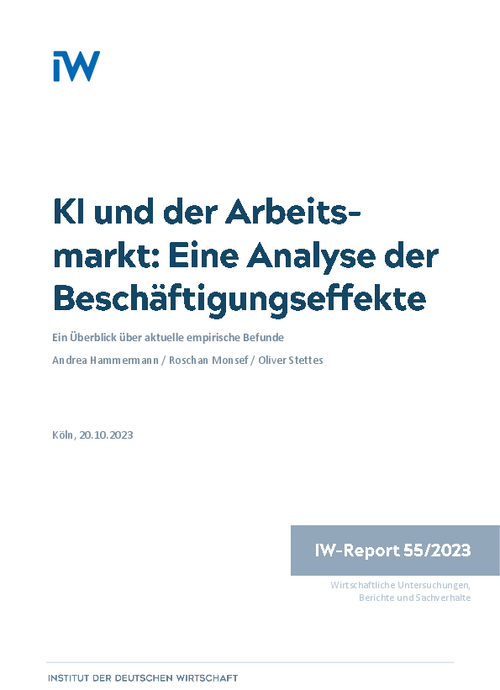The Big Data Analytics Research Unit looks at the opportunities offered by analyses of Big Data . Read more about the focus of this research group.
- Home
- Institute
- Main research topics
- Big Data Analytics
Big Data Analytics
Digital sensors, the Internet of Things and social platforms are among the phenomena which nowadays generate a constant stream of new data. As the volume of this data increases at an ever-faster pace, more and more use is being made of Big Data analyses, which allow an unprecedented potential to be exploited in many areas of the economy. However, the generation and meaningful use of this wealth of information requires special technologies, approaches and systems. Our Big Data Analytics team tackles various aspects of Big Data with a focus on economic issues.
Special Focus
- We specialise in the processing of structured and unstructured data generated by new methods and technologies. These include internet search queries, content from websites (job advertisements, invitations to tender, newspapers, prices) and information from social media.
- Application to economic issues of Big Data methods such as machine learning with deep learning, data mining, natural language processing, time series analysis, etc.
- Application of Big Data to business cycle research
- Augmenting official statistics, for example for the labour market
- Data economics including context-dependent economic analysis of law
- Examples of current research
- The Big Data Cooperation Cluster uses a wide range of analytical methods and approaches. In principle, Big Data methods can be applied to all pertinent economic issues. A typical example is the use of text analysis to analyse networks as in the case given here referring to the German players in Covid 19 research.
Contact Persons

Clemens Fabian Gruben
Data Engineer
Tel: +49 221 4981-784 Mail: gruben@iwkoeln.de Clemens Fabian Gruben
Dr. Armin Mertens
Head of Big Data Analytics Research Unit
Tel: +49 221 4981-747 Mail: armin.mertens@iwkoeln.de Armin MertensAll news
Theories of Harm Because of Data
While digital platforms become more and more important for the whole society as well as the economy, regulatory reactions are also discussed and implemented.
Christian Rusche in CPI Antitrust Chronicle IW
Digitalisation Index 2023: Digitalisation of the economy in Germany
The digitalisation of the economy in Germany continues to stagnate in 2023: the digitalisation index score is 108.6 points in 2023 compared to 110.5 points in 2022. After the sharp rise in 2021, the development of digitalisation since then can be described as more of a lateral or sideways movement.
Jan Büchel / Dennis Bakalis / Marc Scheufen IW
The anti‑steering provision of Article 5 (4) of the DMA: a law and economics assessment on the business model of gatekeepers and business users
Data is a success factor for digital platforms and the core of their business model. The rationale behind this is that data allows for improving the matching process between users which creates value for the platform.
Christian Rusche / Jeanne Mouton in European Journal of Law and Economics IW
To share or not to share: Regulating Data Brokers
Data has become an increasingly important input in the economy. Hence, data and access to data play an increasingly key role in the global economy and for innovation and are crucial for the competitiveness of companies and the EU economy.
Jeanne Mouton / Christian Rusche in Competition Policy International IW

KI and the Labor Market: An Analysis of Employment Effects
It has been about ten years since Frey and Osborne's study on the automation risks of occupations in the USA fuelled the debate on the end of work due to digitalisation worldwide. Since then, numerous scientific studies have been published to examine the employment effects of technology such as robotics.
Andrea Hammermann /Roschan Monsef / Oliver Stettes IW
Your search returned an incorrect status. You may have selected too many filters. You can jump back to your previous selection to adjust your search.
With our new newsletters on the following topics you no longer have an IW publication.
We send out our topic-specific newsletters every month.
Register here
With our new newsletters on the following topics you no longer have an IW publication.
![[Translate to Englisch:] iStock](/fileadmin/_processed_/d/2/csm_Big-Data-Analytics-FroYo_92-iStock-688140822_aec1275474.jpg)


